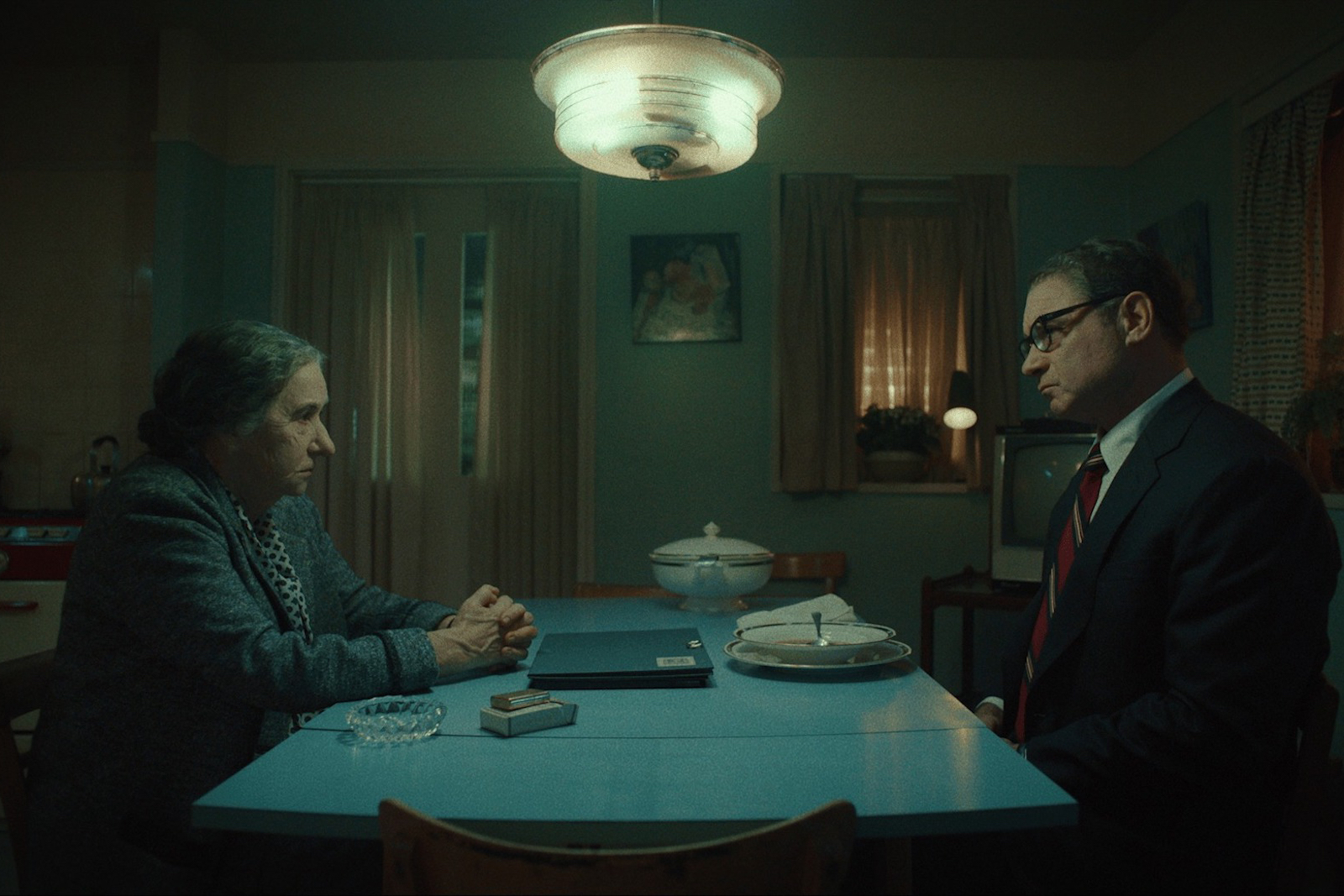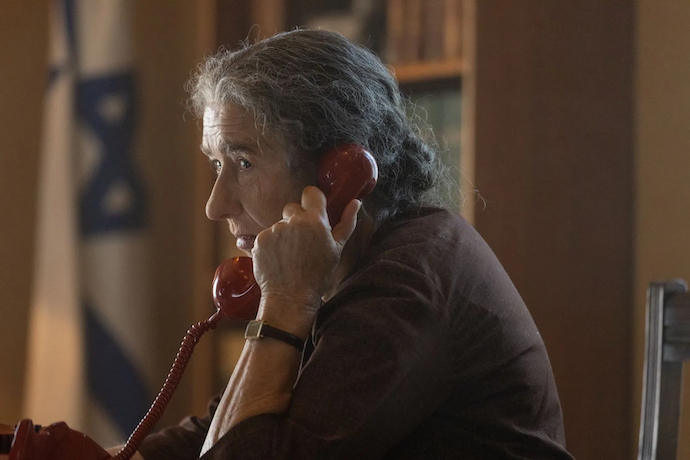
‘Golda’ Captures the Perils Faced by Golda Meir
More than forty years have passed since the great Ingrid Bergman portrayed Israeli Prime Minister Golda Meir in the TV miniseries, A Woman Called Golda (1982). Fighting through cancer during filming, it was Ms. Bergman’s final role, and she won a posthumous Emmy for a performance that left quite a mark on this young (at the time) viewer.
Guy Nattiv won an Oscar for his excellent short film, Skin (2018), and here he takes on a narrow, yet vital window into the term of Golda Meir; a time when the survival of her country was in jeopardy. The screenplay was written by Nicholas Martin (Florence Foster Jenkins, 2016).

Under heavy make-up and facial prosthetics, Oscar-winner Helen Mirren expertly captures the essence of Golda Meir at a time when she was carrying an unimaginable burden. The opening of Golda shoots through a quick slideshow of history before settling into 1973 and the escalating conflict between the Arab states (led by Egypt and Syria) and Israel.
Despite the presence of some intelligence warning of such, Israel was caught off-guard by the surprise attack, and found itself scrambling for the next 3 weeks – the period that makes up the core of the movie. Slump-shouldered and chain-smoking (sometimes defiantly), we see Golda making huge decisions between trips for lymphoma treatments. Her decisions would be the determining factor on how many soldiers would die, and whether Israel would remain independent.
It’s the level and question of that intelligence that provides the film’s framing structure of Golda Meir appearing before the Agranat Commission – a commission designed to render after-the-fact judgment on her decision-making and war strategy. As we witness, some of that strategy involves gut feelings and instincts, yet what the film makes clear is that Golda understands war kills real people – these aren’t just numbers in a report.
Included in these meetings are Moshe Dayan (Rami Heuberger), the Minister of Defense, David ‘Dado’ Elazar (Lior Ashkenazi), Chief of Staff of the Israel Defense Forces, and Ariel Sharon (Ohad Knoller), a key military commander during the war, and a future prime minister.
Camille Cottin plays Golda’s longtime personal assistant Lou Kaddar, and some of the best scenes are the private conversations between U.S. Secretary of State Henry Kissinger (Liev Schreiber) and Golda, as she pushes for assistance and support, with Kissinger in a tough spot.
While the Yom Kippur War lasted barely three weeks, the profound stress of war-induced decisions is obvious in Golda, as is her stance as a tough leader. For her, this did not mean sacrificing human emotions, but rather being decisive, communicative, and surrounding herself with a capable team; although disloyalty in her administration is hinted at by some. Golda lived (just) long enough to witness the infamous treaty signed by Menachem Begin and Anwar Sadat, a treaty made possible through her leadership.
The film more closely resembles Darkest Hour (2017), with Gary Oldman’s Oscar-winning performance as Winston Churchill, than The Queen (2006), Ms. Mirren’s own Oscar-winning turn as Queen Elizabeth. Actual newsclips are mixed in for historical perspective and the score by Dascha Dauenhauer leans heavily on dramatic stringed instruments. A final song by Leonard Cohen caps things off. While it’s true that most of the storytelling doesn’t reach the level of Ms. Mirren’s performance, that performance is enough to convey the high stakes involved.
